COVID-19: Bridging the Divide at the Father McKenna Center
BY LUKE ELLIOTT | April 6, 2020
Located just eight blocks from the U.S. Capitol Building, the Father McKenna Center is a men’s day shelter located in the basement of St. Aloysius Church on the campus of Gonzaga College High School in Washington D.C. As with most businesses and organizations around the globe, the McKenna Center and its surrounding community have been severely impacted by the rapidly evolving coronavirus outbreak.
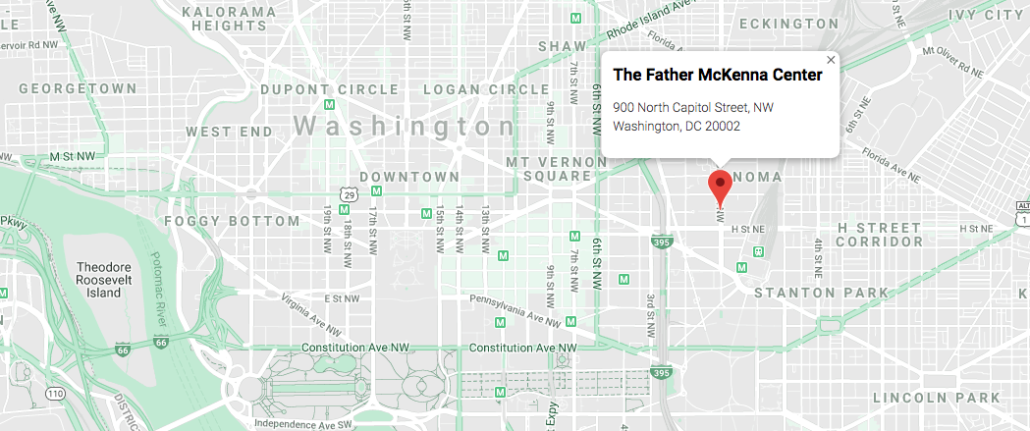
Named after Fr. Horace McKenna, S.J., the staff and volunteers at the McKenna Center have worked to provide services to men, women, and families struggling with homelessness and poverty in the city since 1983. Services available include daily programming and meals for men and a food pantry for families in the neighborhood. The only overnight service typically offered is the hypothermia program during the winter months. The recent COVID-19 outbreak is the first time in the Center’s 37 years that they have had to drastically change their programs for an extended period of time.
The first major alteration to the McKenna Center’s normal operation is the interruption of its general day service for men. This program consists of breakfast, shelter during the day, inspirational talks from the Center’s staff, visits from partner organizations, lunch, and other logistical and social services. The president and CEO of the Father McKenna Center, Dr. Kimberly Cox, says that the D.C. Department of Human Services wants those struggling with homelessness to find refuge in shelters rather than in the streets as the virus continues to spread. For this reason, the McKenna Center recently held a meeting before shutting down their day program to encourage clients to find shelters to stay in for the duration of the pandemic. Dr. Cox explained that the Center’s director of services, Cortez McDaniel, gave the men an inspirational talk on their last day, encouraging them to stay strong and level headed through their experiences in the shelters.
The hypothermia program takes in roughly 10 to 20 men on the brink of breaking out of the vicious cycle of poverty, providing them with food, shelter, and resources to conquer homelessness throughout the brutal winter months. By the end of each winter, participants are positioned to have stable housing and employment opportunities. The program was set to finish on April 1, but the Center will continue to host the current group until the outbreak is brought under control. The reasoning behind this is to prevent the group of men from having to return to shelters, back-tracking all of the progress they have made so far.
While the Center’s food pantry continues normal operations, the number of shoppers continues to drop each day. Dr. Cox and the McKenna Center staff hope that this is because people have enough food and are playing it safe by staying home. Clients have come in telling stories of neighbors offering food to others in their apartment buildings, moments of hope in these troubling times. One change to the food pantry service, however, is the Center’s new role as a Capital Area Food Bank food hub during the outbreak. Anyone with a Washington, D.C., ID is able to pick up bags of groceries when they are in need. This opportunity arose out of an ongoing partnership between the Center and the Capital Area Food Bank. Dr. Cox jumped at the opportunity when the Food Bank asked if she would be interested in helping out given the present circumstances being faced by the collective public.
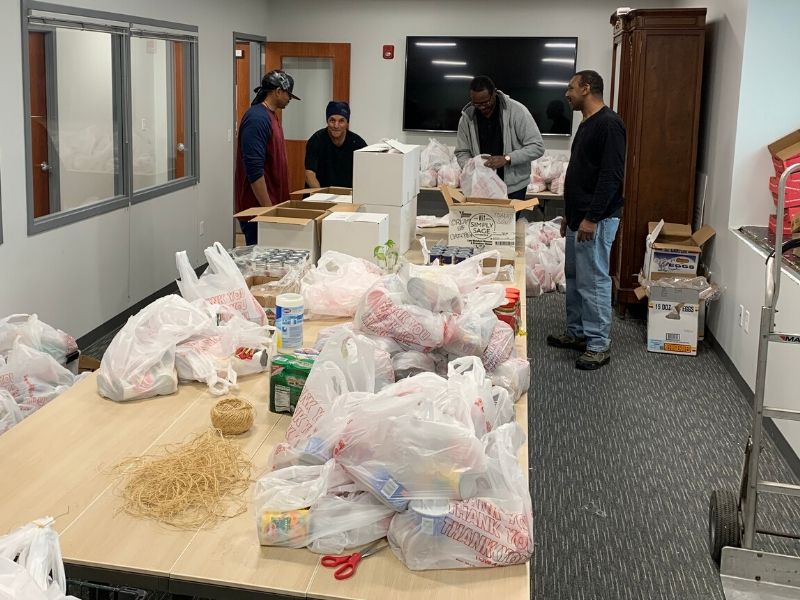
Men in the Hypothermia Program help bag groceries for the Capital Area Food Bank food hub in the Center’s conference room.
Volunteers at the Center usually include Gonzaga students and families, various local school groups, students on college immersion trips, and other adult volunteers. With students no longer on campuses and the high degree of contagiousness, volunteers are not permitted in the Center at this time. Marino Angeloni, a sophomore at the University of Scranton, was set to lead an immersion experience in March. “The McKenna Center was empathetic and gave our group hope to return at a rescheduled time to serve,” says Angeloni, “I am hopeful to make it to D.C. and the McKenna Center in the future.” Some of the only workers left at the McKenna Center now are the Center’s staff and Gonzaga’s Alumni Service Corps, three Gonzaga graduates who live and serve at their alma mater for a year after their college graduation.
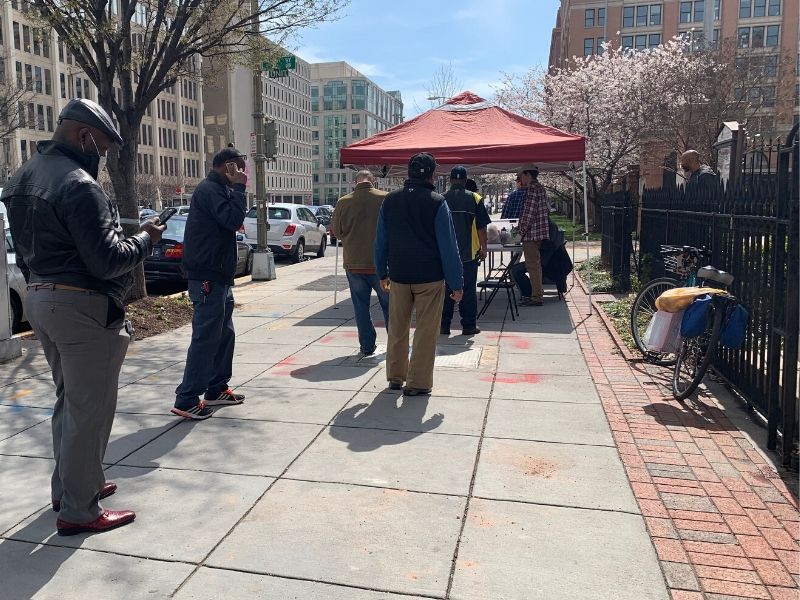
Distrubution at the Capital Area Food Bank food hub.
With such limited numbers now in the Center every day, Dr. Cox and her staff are truly connected with the men. During the first week of social distancing, the group in the hypothermia program, like many of us, found themselves bored with no one new to talk to and little to do. In search of something meaningful to kill time, the men joined together to clean the kitchen at the Center. During the second week of social distancing, the men worked together to make 72 face masks for local hospitals and shelters in need.
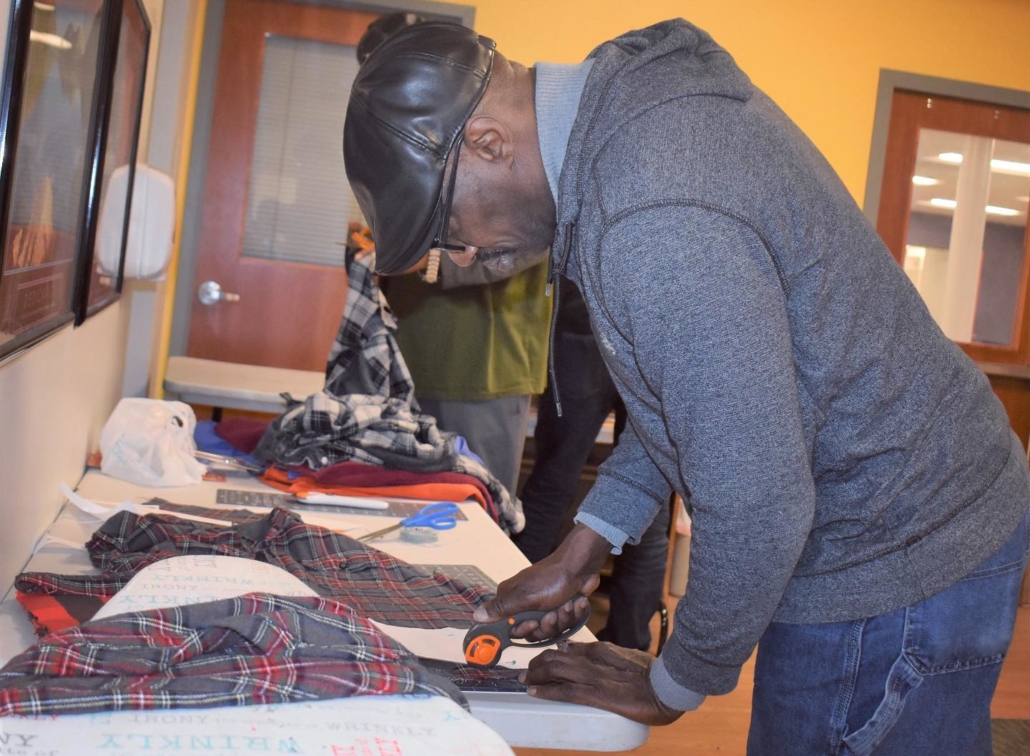
A man in the Father McKenna Center hypothermia program works to make a cloth face mask.
In these times, it is important to recognize that we are all in the same boat. Though we may often think there is a divide between an “us” and a “them,” maybe this pandemic can help bridge this gap. Maybe there are more similarities between “us” and “them” than we think. Right now, we are all encouraged to stay in and quarantine, no matter who we are.
As Dr. Cox put it, “if we all stay in, wash our hands, and remain kind to other people, we may just come out better as a world community on the other side of this. We’ll be better people in future.” Hopefully we can all heed this message and seek to make ourselves and the world a better place during this time.
Luke Elliott is a student at Gonzaga College High School in Washington, D.C., who has been working with the Father McKenna Center for the past two years as a student historian. This project was also the inspiration for a breakout presentation at the 2019 Ignatian Family Teach-In for Justice titled “One Campus, Two Worlds: Why a Washington, D.C. High School also Has a Day Shelter for Men on Its Campus.”

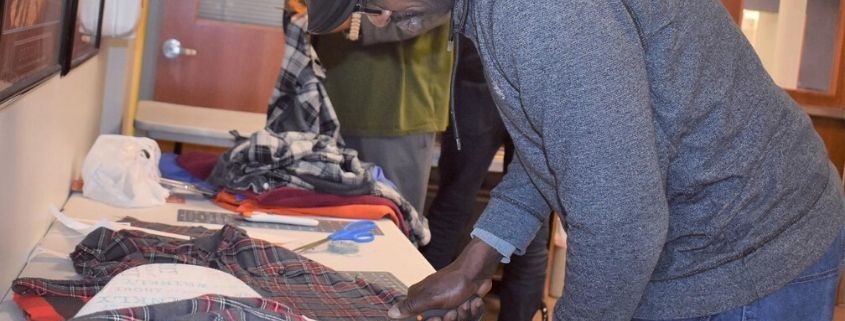
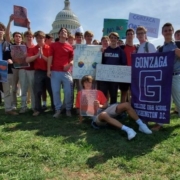
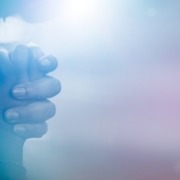
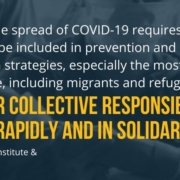

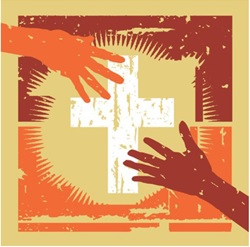
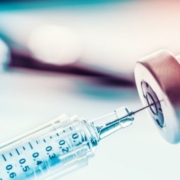

The McKenna Center is a fine initiative. Thanks, Luke Elliott, for the detailed description and reflection. All the best to you and to your colleagues in your challenging ministry. Everything is in God’s hands. The center-periphery distance is fast shrinking. Either we are all at the center or all at the periphery.
Really great article that highlights the significant impact of the MCKenna Center on the men it serves.
Wonderful news story and an excellent program. I am so proud of my Grandson, Luke. I used to play Softball near there with the DCFD teams.
Bravo Luke!